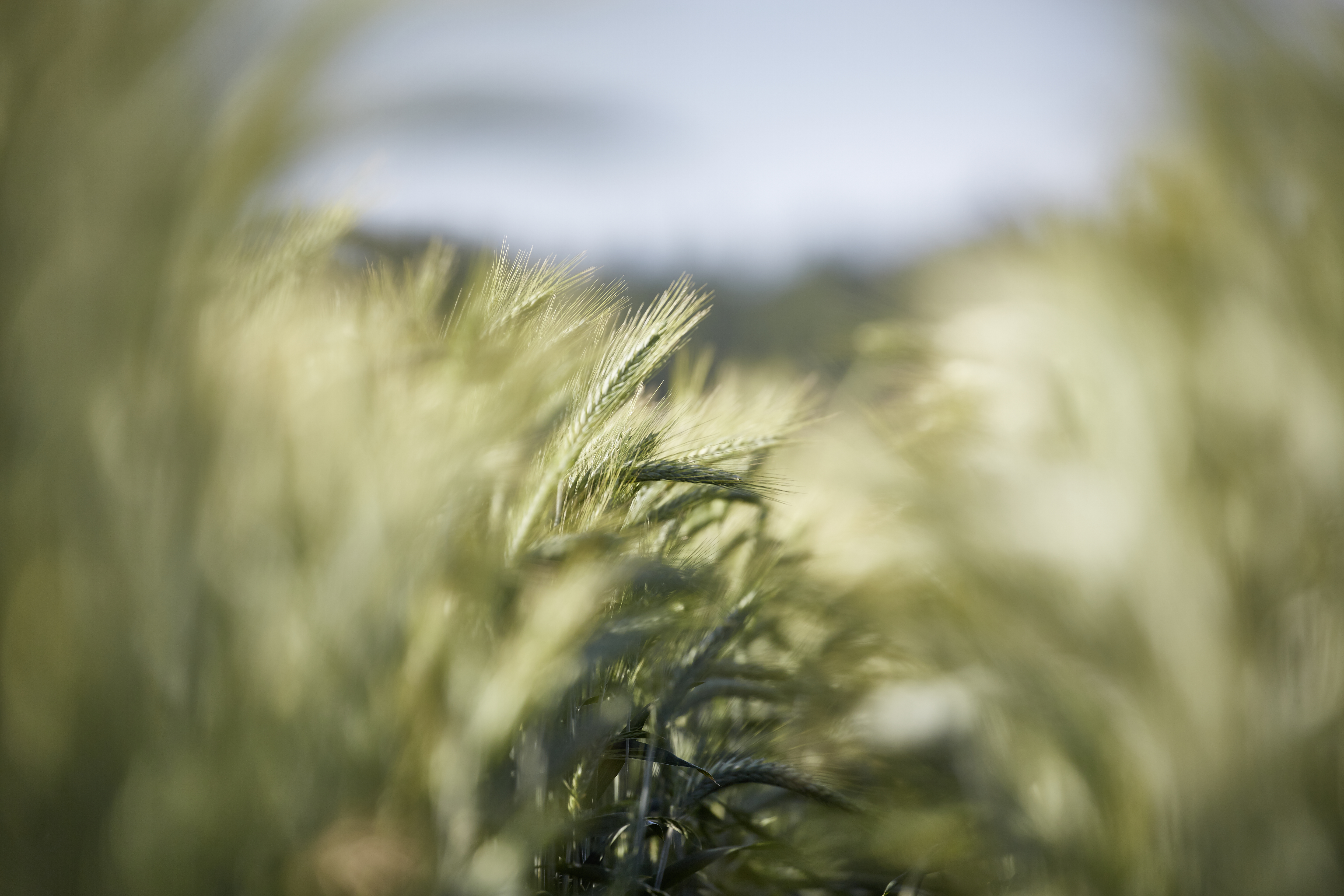“We intend to continue to grow and to invest in the future, regardless of the economic situation. As a result, expenditure to secure future growth impacted EBIT in the first six months, largely as planned. We currently expect a solid double-digit EBIT margin at the end of the fiscal year,” stated Eva Kienle, Chief Financial Officer of KWS SAAT SE. The decline in net sales was accompanied by a planned increase in expenditure, particularly on research and development, IT projects and optimization of administration. Earnings in the previous year were also impacted by a positive special effect from sugarbeet seed production. EBIT totaled € –89.6 (–70.3) million. Net income after taxes for the period declined by 25.3% to € –80.6 (–64.3) million.
Segment reports: Winter cereals business grows
Net sales at the Corn Segment in the first half of fiscal 2017/2018 fell by 38.9% to €110.5 (180.8) million. One contributing factor was that rapeseed activities, which accounted for €25 million of the Corn Segment’s net sales in the same period of the previous year, were transferred to the Cereals Segment. Net sales from corn seed in South America – particularly in Brazil – were below the strong level of the previous year. The decline was due not only to strong negative exchange rate effects, but also to a temporary inadequate supply of seed resulting from our planned portfolio switchover. In Europe and North America, there is usually only little revenue generated from early sales of corn seed in the first half of the year. The segment’s EBIT was € –76.2 (–59.1) million. The drop was largely attributable to transfer of the rapeseed activities.
Net sales in the Sugarbeet Segment in the first six months were down year on year at €33.8 (45.2) million due to the fact that (as expected) seed sales in Turkey were lower. The devaluation of the Turkish lira also had a negative impact. Revenue from sugarbeet seed in the EU rose slightly, but – as is customary at this time of the year – remained low. No significant net sales are generated in the other regions at this stage, either. The segment’s income in the first half of the year was € –27.3 (–19.2) million. A special effect related to seed production had a positive influence on earnings in the previous year.
In the winter season just ended, KWS’ winter cereal and winter rapeseed business performed positively and increased markedly. Net sales in the Cereals Segment in the first half of the year rose by 47.8% to €123.3 (83.4) million and so were well up over the same period of the previous year. The main reasons for that were the transfer of all rapeseed activities to the segment at the beginning of fiscal 2017/2018 as well as an 11% rise in seed sales in Europe. Hybrid rye seed business in Germany and Poland also went well, with net sales of rye seed growing there by double-digit rates. Net sales from barley and wheat likewise rose slightly. The segment’s income was €34.3 (21.4) million.
Net sales in the Corporate Segment totaled €2.4 (3.2) million. They are mainly generated from the company’s farms. Since all cross-segment costs for the KWS Group’s central functions and basic research expenditure are charged to the Corporate Segment, its income is regularly negative. In addition to the increase in selling expenses as a result of the planned launch of marketing measures in Europe, general administrative expenses also rose – among other things, due to costs for optimizing our organizational structure and strengthening our IT infrastructure. The segment’s income was € –45.3 (–35.2) million.

